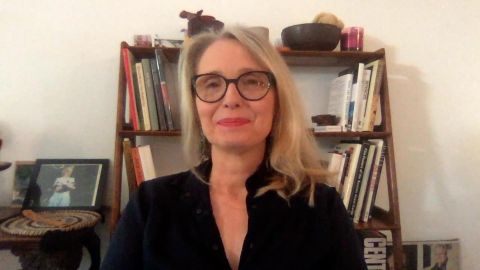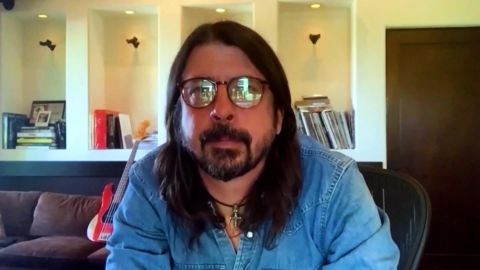Read Transcript EXPAND
PAUL KRUGMAN, COLUMNIST, “THE NEW YORK TIMES”: Well, I am a little bit more pessimistic than I was a few months ago, because the supply chain things are turning out to be more persistent and bigger than I expected. But I still think that the kinds of things that are so photogenic, the ships piled up outside the ports of Los Angeles, the shortages of some goods on shop shelves, are actually — those are things that are not going to last. They might persist for a number of months, but they’re not long- term. I think there are bigger questions about supply of labor, possibly energy issues that are — you need to separate out the things that are really just kind of teething pains for an economy trying to bounce back from the pandemic, and things that may represent longer-term issues.
CHRISTIANE AMANPOUR: OK, so let’s talk about one of them. And that’s the energy. Of course, to what you’re saying, we were told here in Britain that it’s not really an energy crisis. It’s a driver’s crisis. And it’s only in some parts of the country. And why does the media, as you put it, look at all those photogenic pictures and not the big picture? But “The Economist” has said — and let me just quote — “It’s the first big energy scare of the green era. And it does show that the world still is dependent on fossil fuels.” And it says: “Spending on renewables needs to rise. And the supply and demand of dirty fossil fuels needs to be wound down in tandem, without creating dangerous mismatches. Many countries have net zero pledges, but no plan of how to get there. Without rapid reforms, there will be more energy crises and perhaps a popular revolt against climate policies.” Paul Krugman, do you agree with that assessment?
KRUGMAN: Well, sure. I mean, you can’t switch to renewables before the renewable energy production base is fully there. And you can’t — in particular, we don’t have — we haven’t invested enough in kind of standby capacity to go with renewables. We don’t have enough energy storage. We’re still reliant on fossil fuels to deal with peak demand. But also, I mean, a lot of this really is very much a special factor — you have special factors because of the peculiar nature of the crisis we have had. We still have — I think underlying a lot of this, what’s going on, is the fact that because services were inaccessible because of infection risks, people started buying stuff instead. We have had this enormous surge. In the U.S. for a little while, purchases of durable goods were running more than 30 percent above pre-pandemic levels. And all of that stuff, in turn, requires a lot of energy to produce. It’s producing all this clogging in the ports. So these are things that are really not a fundamental issue. They are just the weirdness of this recent business cycle catching up with us.
About This Episode EXPAND
The global energy crunch is hitting supply chains and consumers hard, interfering with the effort to recover from the pandemic and last year’s harsh winter. Julie Delpy aspires to change our outlook on aging with her new series “On the Verge.” In Dave Grohl’s memoir “The Storyteller,” he charts growing up in Washington, D.C., touring as a teenager, and his friendship with the late Kurt Cobain.
LEARN MORE


